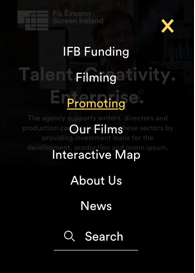There are few activities that are evolving as quickly or competitively in online marketing as SEO. With emerging technologies and trends, algorithm updates, and new techniques available to win that highly coveted Position 0, SEO experts and fanatics alike are eager to predict and learn the new trends that will ultimately shape the digital futures of our businesses.
There are two trends that we predict will permeate the daily lives of consumers, and as a result, marketers, developers, and designers alike in 2019. These are:
- The increasingly important role of intent
- Augmented reality
On the surface, these trends may not seem to be related to SEO, so let’s dig a little deeper.
Intent
The continuous updates surrounding the algorithms that search engines use to filter content can be tricky to keep up with - but one of their major focus points at the moment surrounds the intent of a searcher. They are focused on identifying and understanding the syntax used in everyday language, and as a result providing content based on the unique intent of a searchers query. Let’s delve a little deeper into what this means for SEO.
Intent surrounds the reasoning of why people conduct a specific search. There are four distinct types of search intent - informational, navigational, transactional and commercial investigation. By understanding the type of search intent your potential consumer has, you can begin to take steps to optimise your site for it.
Google, for example, are now using Rankbrain to identify the intent of a searcher. Rankbrain is Google’s deepest dive into machine learning, and has a high success rate in understanding user intent. As search engines improve AI integrations, businesses will need to find ways to create and develop their websites in a manner that will be crawlable and searchable for bots such as Rankbrain, whose aim is, over time, to perfect Googles interpretation of searcher intent.
Companies that cater to the user experience, optimising content and UX to satisfy user intent, will gain authority & validity both in the eyes of the public and search engines, as a result coming closer to the highly commodified Position 0. This can be done by taking a few simple steps:
- Make sure your landing pages fit the search intent of your chosen audience
- Create well structured content broken down into short sections, answering more search queries at a time.
- Use long tail keywords
- Develop in-depth buyer personas
As a result of taking these steps, you will experience a reduced bounce rate, more page views, higher ranking and a wider audience reach.
Augmented reality
Simply put, augmented reality provides you with visual information layered on the physical world. Augmented reality has become a force to be reckoned with over the past few years, and is beginning to change the ways that users browse. This will inevitably transform SEO as we know it.
Google Lens gives a good idea of where Google thinks AR could go in the next few years, and if widely adopted, it will have a huge effect on SEO. A searcher will be able to hold their phone up to anything from a statue to a storefront, and will be presented with facts, business information, reviews, opening times, and any more relevant information that may be of interest to them. Search professionals will be faced with the challenge of a search ecosystem that extends literally everywhere you look, with content being added by brand and by consumer alike in real time.
There are three main types of augmented reality - marker based, markerless and user generated. While these sound confusing, they’re actually pretty self explanatory. Marker based AR is where physical world objects, such as RFID labels, are detected and then prompt the superimposition of visual elements. Markerless AR can be triggered by geo-location (Pokemon Go), or use text input/voice recognition to serve imagery on the users mobile device. User generated AR is where a user can tag physical locations in real-time, for example leaving reviews/photos of food at a restaurant.
As Google continues to invest in AR platforms like Daydream and Tango, it is highly likely that AR based content will have a greater probability of ranking higher on search engines.
In order to prepare for the effect that AR will have on SEO practices - you need to take the following steps:
- Optimise Google My Business listings
- Monitor and improve on ratings & reviews
- Geo-location based targeting
- Place an emphasis on visual search & interactive content
SEO is a complex science, and with the number of emerging technologies that exist and are gaining popularity today, it’s hard to predict where it is going to go. With SEO, it’s not how much you know today that matters, but how well you keep on top of the ever changing rules of the game. There is no doubt in my mind that the two trends discussed here will each have a huge impact on SEO in the future, it is just a question of when, and levels of consumer adoption of the new technologies in 2019 should give us a clearer indication of this. Watch this space.









